What inspired you to attempt the Guinness World Record for the longest marathon reading aloud, and how did you stay motivated throughout the 215-hour challenge?
I regard reading books as my secret to seeing familiar things in a new light. Knowing very well that education is the tool for personal and societal growth, such should be encouraged in our society. I want to inspire others to cultivate the habit of reading, so I thought of a global platform where I can motivate people to imbibe the reading culture and be aware that there is no boundary to human potential. That’s why I took up the challenge to break the Guinness World Record for the Longest Marathon Reading Aloud, in acknowledgement of its rich history of celebrating the enduring success of the written words and developing literacy development around the world. It’s a world platform, and I am sure my achievement has impacted the life of the people positively and encouraged them to read for change. The journey was a great adventure. Although it was tough, it was not boring. I enjoyed the moment as I came across different ideas in the books that I was reading. It was physically tiring and I did experience different pains all over my body. I stayed motivated with my positive mindset, and the cheers from the crowd kept me going.
How did the African cultural heritage, particularly storytelling and oral traditions, influence your love for reading and the determination to break this record?
In my childhood, we would always have a night session where the elders would tell us stories of African cultural heritage and oral traditions. Most times, they would ask us questions about our African heritage and it was always a fair competition where the winners won prizes. So, if you wanted to stand out, you would need to prepare before the night session and this spurred me to develop an interest in reading books. Additionally, the success stories of African writers such as Professor Wole Soyinka and Professor Chinua Achebe; and Professor Wole Soyinka in particular, whose literary works earned him the Nobel Prize in Literature in 1986, making him the first African to receive the award. Their success hugely inspired and motivated me to read widely and to also do something outstanding that would put Nigeria and Africa on the world map.
Reading over 100 books across diverse subjects such as finance, leadership, and mental wellness is no small task. How did you select these books, and what key lessons do you believe are particularly relevant to Africa’s development?
Since the objective of the record attempt was to read for change i.e reading for personal and societal growth, it was imperative for the material I read to focus on personal and societal development. This is why I selected books that teach the realities of life. I did careful research before arriving at the books that focus on these areas.
Africa has a rich history and has produced leaders of note in all spheres of life who stand out on the global stage. But it’s just unfortunate that such a rich continent is still battling with economic, insecurity, and societal challenges. This can only mean one thing, which is that the standard of our education is diminishing, hence, our policies have also produced underdevelopment.
The objective of this attempt at the world record was to liberate Africa by encouraging increased literacy which would better equip our people to provide practical and viable solutions to our societal problems. So, this global achievement has inspired people to pursue knowledge for the development of the African continent.

Literacy rates in Africa remain a concern, with many children still lacking access to quality education. In your opinion, how can African governments, educators, and communities come together to improve literacy levels and foster a love for reading?
There are key areas that need urgent attention to improve the level of literacy development and the reading culture in Africa.
- More schools should be built to increase the accessibility of education to the children and youth. The dearth of secondary schools and tertiary institutions in remote areas has meant a lack of access to education in rural areas.
- Workability and impact of research institutes in Africa: There needs to be more research institutes in Africa focusing on all round development of the continent, and the existing ones should be mandated to actually research and provide workable solutions to the problems facing the continent.
- Job creation and Empowerment: The rate of unemployment in Africa is alarming. Graduates find it difficult to get meaningful jobs after graduation and this is a major setback for education encouragement in our society because the children and youths consequently see going to school as a waste of time and effort; a meaningless exercise that cannot even help them to earn a good living. There should therefore be increased investment in key sectors that are capable of offering good jobs to the youths as this will encourage them to go to school. There should also be an initiative which focuses on empowering the youth who are into small and medium scale business. This will aid job creation thereby reducing the rate of unemployment, while also encouraging entrepreneurship education in the society.
- Provision of grants and scholarships: Merit should be ingrained in our education system, where the best students are celebrated tremendously. This will inspire other students to work hard so they too can benefit from the grants and scholarships for the best students. This will aggressively promote the love for book reading and hardwork.
- Orientation program and competitive educational events: There should be a rigorous reorientation and awareness campaign for children and youths which teaches that education is the best legacy and the path to achieve success. There can also be periodically held competitions among students at all levels to challenge and motivate them to develop themselves. The winners can be celebrated with big prizes. In lieu of this, I am working on a foundation, ‘Samson Ajao Foundation (SAF)’ that will focus on rolling out initiatives to improve the quality of education and the reading culture in Africa.
What role do you think social media and technology can play in promoting literacy, particularly among African youth who may not have easy access to physical books or libraries?
The breakout of the pandemic which peaked in 2020 demonstrated how important social media is to education development in our society. When there was no gathering and movement which halted the school session, seminars, conferences and other educational programmes, with the help of social media, there was a platform to continue with all the different programmes from the comfort of everyone’s home.
Education, business, communication and the economy have all evolved and social media played a vital role in these developments and is still necessary for further development of education in our society.
There are institutions that offer online courses and training and produce professionals through their online teachings. There are sites where textbooks can be downloaded to read.
However, poor control of social media has led to education deficiency in our society where there is misleading content that floods our social media platforms. The government would do well to set up social media algorithms with rules to regulate content that shows in the users feed, regulate advertisements to ensure content that users post and received content are not harmful but are educative, and that they contribute to the development of education and the society. Effective social media control by the government and good algorithms will enable education development through social media.
As someone who has set an extraordinary example in academic endurance, what advice would you give to students across Africa who struggle with maintaining focus and perseverance in their studies?
Yes, maintaining focus is imperative to achieve success. However, it is not possible to maintain focus without having a clear set of goals. Students at all levels in Africa should have set goals for their academic pursuit. This will help them to remain focused and concentrate on their academic pursuit even in the midst of distractions and challenges that come with academic pursuits. These goals should be written down for continuous motivation and to remain focused on one’s goal. Success can not be assured without perseverance. Students who want to achieve success must persevere and stay consistent.
When fatigue and difficulties set in, how can students remain consistent and persevere?
- Students should remember why they commenced their academic journey: Your reasons for going to school would be your driving force to succeed.
- Be consistent: Your academic journey is a continuous process therefore only those who remain consistent in working hard will achieve success at the end of the day
- Associate with like-minded people: Human beings are social animals and cannot live in isolation; and an academic environment is a place where you cannot succeed all alone. But it’s important to move with people who share the same vision with you so that when fatigue or some discouragement sets in, you can push each other to success.
Your feat has placed Osogbo and Nigeria on the global map. How do you think individual accomplishments like yours can help boost the image of Africa and inspire a new generation of African innovators and leaders?
My achievement has once again imprinted the name of Africa on the global stage. The achievement goes beyond a personal milestone but also serves as a testament to the potential for global excellence from African countries. It has also helped to reshape the narrative about Africa that Africans don’t read books.
I believe such world feats like mine will also project Africa as a continent full of great talents, resilience, and innovations.
This feat not only portrays the image of Africa in bright colours on the global stage but also instills pride and confidence in the younger generation. Driving them to pursue and achieve greatness in their respective endeavours. My achievement has made me a role model for the new generation, inspiring them to dream big, work hard, and believe in their ability to make a global impact.
What challenges did you face during the reading marathon, and how did you overcome them? Do you think the African education system prepares students for such mental and physical endurance?
It was a difficult task as the guidelines are strict. I only had 5 minutes in 1 hour to rest, so a total of just 2 hours rest in 24 hours. It was during this time that I would eat, take my bath and do other necessary things. I couldn’t take any pain relief drugs to avoid falling asleep, so the body pains were very hard. There was a particular day that I thought I had lost my eyesight because suddenly, I couldn’t see anything in the book that I was reading. But thank God, I could see the audience right before me so I knew I was not blind, I was just tired, so I looked for a book with a big font size. The path to this success story was tough and mentally demanding.
I was able to overcome the huge challenges with the support of people all around the world, my indefatigable team, family, friends and supporters across Nigeria who came to join me in rewriting history and cheering me up. I also commend myself for having the right mindset and for adopting a winning mentality that kept me going when it was only me that could help myself. And yes, I must also add this. The African education system prepares students for such mental and physical tasks. I am a living testimony.
Now that you have achieved this record, what are your plans for the future? Will you be using this platform to advocate for literacy or education reform across Africa?
Yes, I will be advocating for access to quality education for all and literacy development in our society. Like I mentioned earlier, I am setting up a foundation that will focus on this initiative in order to continue promoting education and a better reading culture in our society.
How can schools, educational institutions, and literacy programs in Africa use your achievement as a model to inspire young readers and promote continuous learning?
I am ever ready and willing to collaborate with schools, institutions, organisations, and individuals that share this passion with me of promoting and improving the reading culture and pushing for better quality education. I welcome those who will join hands with me so that we can achieve our goals together.
_______________ A proud alumnus of Osun State Polytechnic, Iree, Samson holds a Higher National Diploma (HND) in Business Administration and is a certified Customer Relationship Management Professional. He is also the founder of Amokoko Consult, a writing service and business consulting firm. His leadership journey began as the President of the Students' Union Government at Osun State Polytechnic and continues today as chairman of the Old Boys’ Association for Lagelu Grammar School, Ibadan, where he fosters school growth and alumni relations. Samson's story is one of perseverance and passion, serving as a beacon for Africans to embrace the power of education and personal development. FB: Samson Olalekan Ajao X: Ajao_impeccable IG: Ajao_impeccable Tiktok: Impeccable001 Tel: +2348146374189 Email: ajaosamson19@gmail.com






























































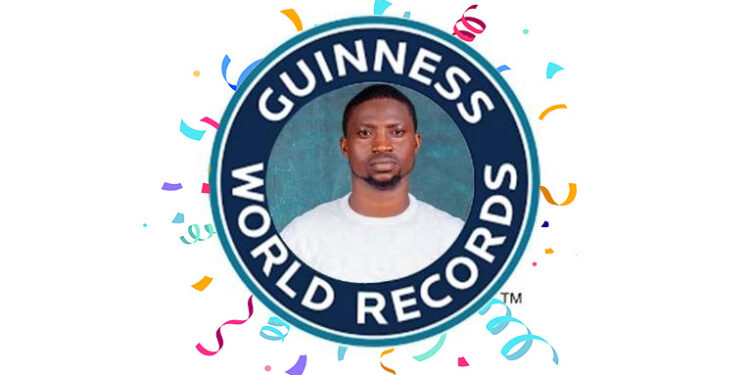




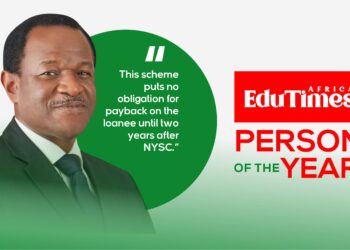
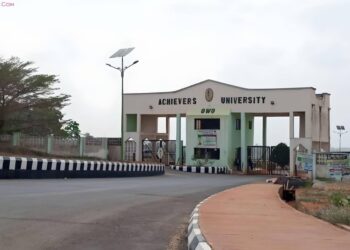
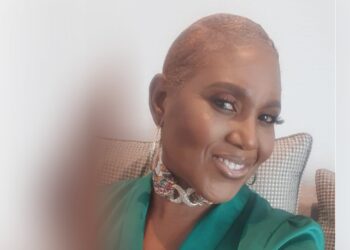
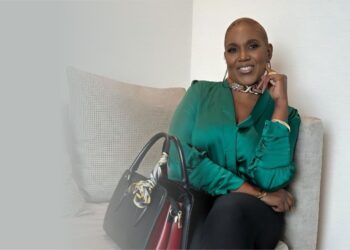
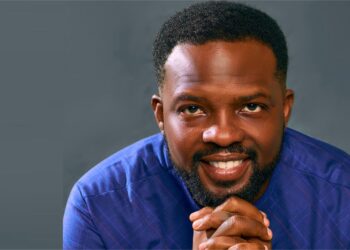
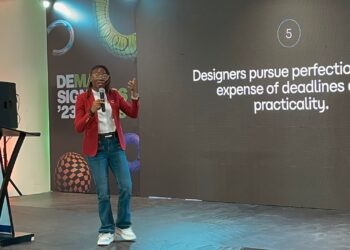










 EduTimes Africa, a product of Education Times Africa, is a magazine publication that aims to lend its support to close the yawning gap in Africa's educational development.
EduTimes Africa, a product of Education Times Africa, is a magazine publication that aims to lend its support to close the yawning gap in Africa's educational development.